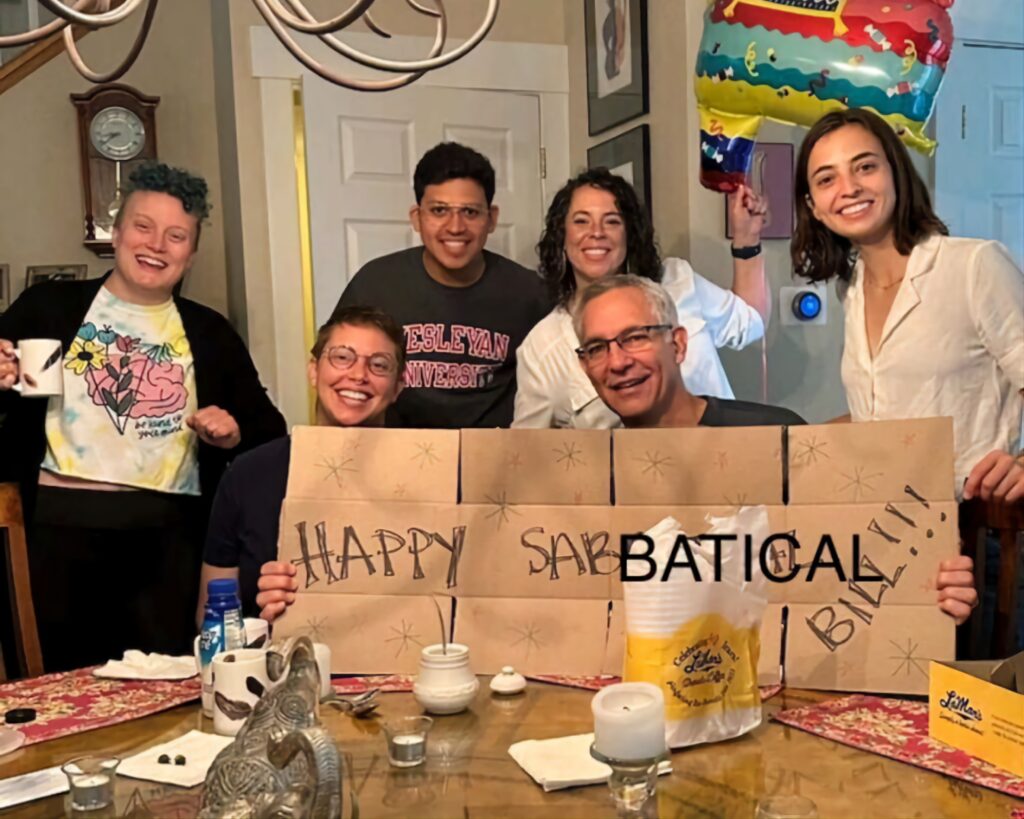From July 1 through October 1, the Canopy piloted our first three-month sabbatical. As the one who took leave during that time, I was frequently asked what that feels like and often responded “I feel like I have won the lottery,” a nod to how lucky I felt, and how rare this opportunity is.
But the lottery is actually a bad analogy. The fact that I was able to step away from the work I’ve been doing at the Canopy for the past 20 years is not random luck, nor a good fortune bestowed just on me as an individual. It took deliberate policies, structures, and financial stability to make it happen, and the benefits accrue to not only the person on leave but to everyone in the organization.
As we reflected as a team last week on what those benefits were, my teammates discussed how much they enjoyed the chance to step into new roles, and how good it felt to accomplish things presumed to be in my domain. They also realized how often the default setting is “ask Bill” since I have been around since the organization’s founding, instead of relying on the wisdom and experience of everyone on the team. Stepping in to lead together increased everyone’s sense of ownership and responsibility for the organization.
For my part, the time away gave me the chance to spend a month travelling to see friends in Europe, help my 90-year-old mother move into a condo near us, do some backpacking, attend a silent meditation retreat, go to Burning Man, and insulate my garage. Each of these was a gift on its own, and collectively they helped me slow down and be more present to the people and experiences around me. With this slower rhythm, I felt more capable of accessing my full self, with a wider range of emotions and capabilities than the limited version of me that shows up when part of me is here and the other parts are worrying about all that I am not doing. Rooted in the moment, I felt stronger, more alive than “being lived.”
As I return to work, I wonder whether these insights will fade, and worry a bit that the person my wife came to lovingly call “Sabbatical Bill” can only survive in the rare climes of time away from work. While it is too early to tell for sure, so far, I’ve found that being truly present is not only possible while sipping wine in Spanish cafes or dancing in the Nevada desert—it is possible with each person on every Zoom call and in every checkout line. I am starting to realize that I’m not just free during the blank spaces on the calendar, but in every space—free to really listen to the person I’m speaking with, free to find things funny or sad or interesting, free to ask “What is the point here, again?” Freedom isn’t the space we find on the other side of our responsibilities; it’s the space between the whirling world around us and our own internal responses to that world. Or as Viktor Frankl said, freedom is the space between stimulus and response.
The secret of the sabbatical seems to be less about just the time one spends away, and more about how we create and maintain the rituals and routines that preserve the sacred space of freedom in the face of the world’s pressures. For me, these are daily meditation time and a weekly rhythm of planning and reflection, and for our team it is “home day,” where we pause to review the past quarter to see how our intentions matched our results, and to draw the lessons that will help us face the quarter ahead with new resolve and greater wisdom. I trust that these regular rituals will help us preserve the ways we grew personally and collectively during those three months, and to prepare for the days other teammates spend on sabbatical in coming years.
So, rather than thinking of a sabbatical as a rare lottery ticket, or as something defined by the time away, I’ve come to think of it as a renewable resource, and a way of remaining present in our lives regardless of where we find ourselves.


